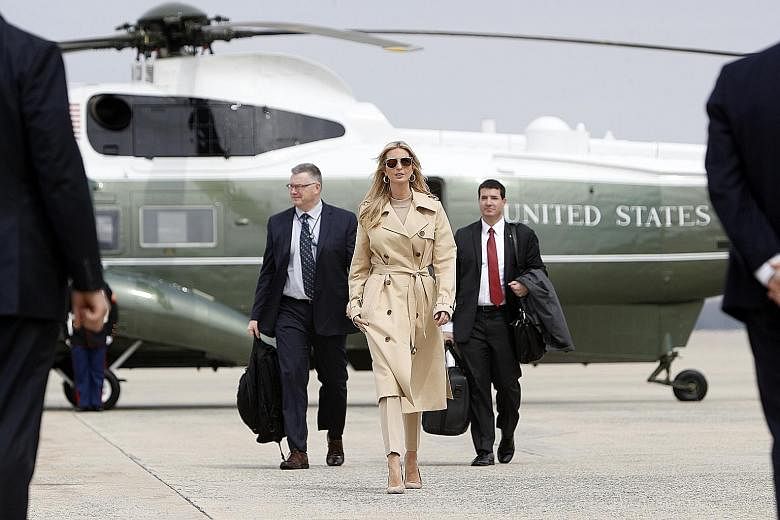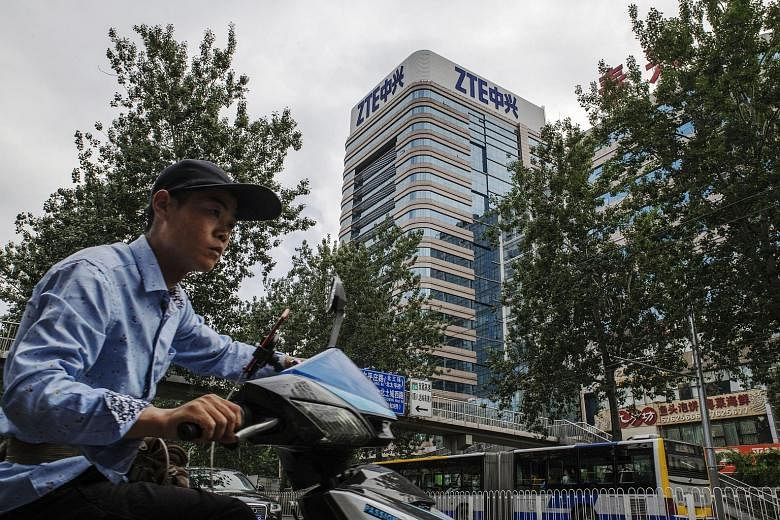WASHINGTON • President Donald Trump is merging his national security and trade goals in a blur of tactical improvisation that risks alienating United States allies and opening American businesses to costly retaliation, according to several Republican lawmakers, business executives and former US officials.
Mr Trump last week initiated a Commerce Department investigation that could lead to tariffs of up to 25 per cent on foreign cars, arguing that a flood of imports had eroded the nation's manufacturing base and threatened the nation's security.
The potential auto tariffs - which would hit Mexico, Canada, Japan and Germany hardest - are the latest sign of the US leader's fluid approach to national and economic security that has left allies and adversaries baffled over US intentions, say foreign diplomats. The proposal has irritated close allies like Germany while inviting demands for similar protection from an ever-expanding list of US industries.
Mr Trump holds an expansive view of national security, describing imported products like steel as worrisome threats to the US. Yet he engages in freewheeling bargaining that treats vital strategic considerations as the equivalent of commercial factors, leaving negotiating partners unsure of his true priorities.
"Past presidents generally tried to keep national security issues in one lane and trade policy in another lane," said Mr Peter Harrell, a former official in the State Department's bureau of economic and business affairs. "Trump is just more willing to make trade-offs between the two."
The auto tariffs are the second time in less than three months Mr Trump has cited national security as a justification for protectionism.
-
34
Total number of trademarks
Ms Ivanka Trump has in China.7
Number of new trademarks China awarded her this month; it was across a broad collection of businesses, including books, housewares and cushions.
Yet his recent call for leniency for ZTE, a Chinese telecom firm crippled by penalties for violating US sanctions on Iran and North Korea, showed he would bend on a genuine security threat, analysts said.
Chinese leaders had demanded an easing of ZTE's punishment in return for progress in trade talks that are scheduled to continue on June 2 in Beijing with the arrival of Commerce Secretary Wilbur Ross.
On Friday, Mr Trump announced on Twitter he was allowing ZTE to "reopen" in return for management changes, payment of a US$1.3 billion (S$1.8 billion) fine and a promise to buy American parts.
"The striking feature of Trump's use of national security is the inconsistent and haphazard use of the term, so as to render it meaningless," said Mr George Magnus, an associate at Oxford University's China Centre. "What I see is Trump using national security as a blanket to obfuscate simple trade protectionism."
The ZTE reversal prompted bipartisan opposition in Congress.
The move also drew criticism from civic watchdog groups as it came a week after China awarded Mr Trump's daughter Ivanka seven new trademarks across a broad collection of businesses, including books, housewares and cushions. In total, Ms Trump has 34 trademarks in China.
"Raising taxes on Americans who choose to buy imported cars or trucks is a bad idea. Doing it under the false pretense of national security is an even worse idea, as it invites retaliation and weakens our credibility on actual trade disputes," said Republican Senator Patrick Toomey.
Republican allies in the business community also objected. "This isn't about national security," said US Chamber of Commerce president Thomas Donohue. "The administration has already signalled its true objective is to leverage this tariff threat in trade negotiations with Mexico, Canada, Japan, the European Union and South Korea."
The auto proposal highlights an aspect of Mr Trump's bid to use national security concerns as a trade war weapon. He is threatening to hurt close US allies as much, if not more so, as countries like China.
"In the process of damaging our economy, they're alienating all our allies," said Mr Phil Levy, a former White House economist.
Even if the tariffs are challenged in court or at the World Trade Organisation, that process can take months or years, providing ample short-term leverage to seek unrelated concessions from trading partners like the EU, Mexico and Japan.
WASHINGTON POST


